In the hometown of espresso, Espresso is actually more like a dessert.
Professional coffee knowledge exchange more coffee bean information please follow the coffee workshop (Wechat official account cafe_style)
What is espresso? Few people who come into contact with espresso for the first time are not surprised, which is a far cry from our daily understanding of "a drink"-in a small, heavy cup with a pocket of an ounce and a spoon. I don't know what to do. After a sip, the strong essence of coffee may make people who are not used to it say that it is too bitter and too strong, and it is a pity that they get such a sip in exchange for a banknote.
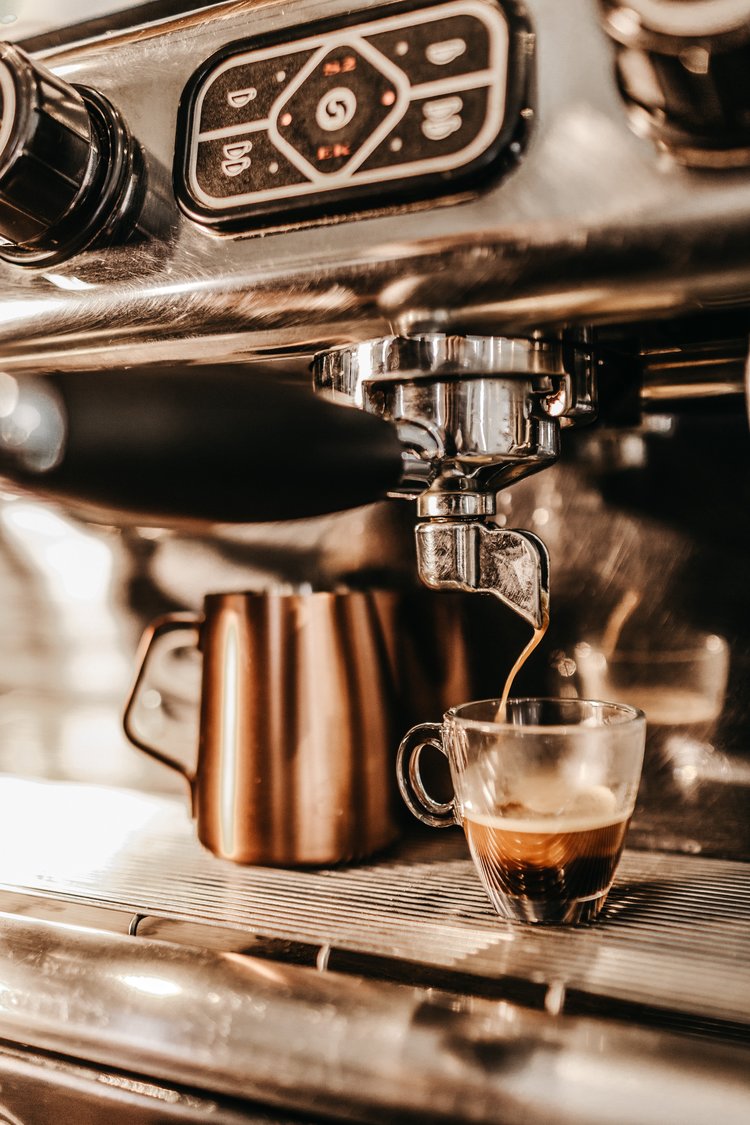
What on earth does it mean to drink?
The taste of Espresso is strong and pure, and it is even more like a dessert than a drink-unlike in Japan, when drinking coffee in Italy, people are more accustomed to adding sugar, drinking it like dessert: Espresso with sugar becomes more mellow, like bitter chocolate.
Add spirits to make cafe é corretto, add foam caffe macciatto, or add chocolate or casserole sauce, and have a cappuccino or latte for breakfast. Ten people may have dozens of their own favorite ways to drink. The variety and strength of espresso satisfy every Italian's coffee-loving blood.
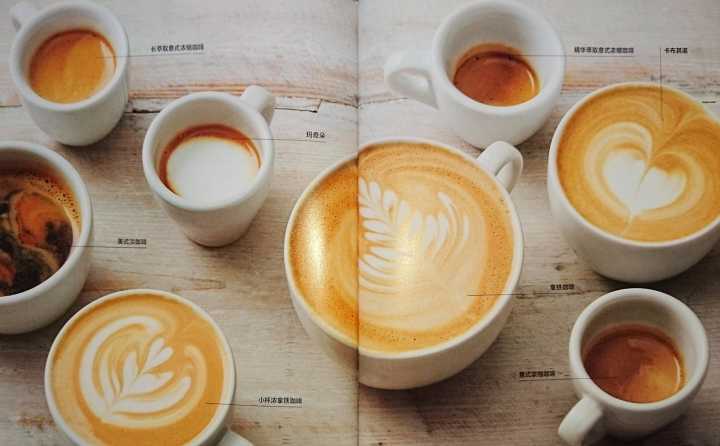
When getting started with coffee, I believe many people have had a lot of confusion on nouns. For example, what does "mocha" mean? Or in the early years, he went into a cafe and thought of ordering caramel macchiato, but foolishly said "macchiato". As a result, he sent a small cup of milk coffee, and then he was confused. The reason for this is often due to the confusion of naming and the fallacy of translating foreign languages into Chinese.
Take Macchiato, for example. The original meaning of the word in Italian is "spot" or "stain". When used in coffee, "Cav è macchiato" originally means "spotted coffee". Some people may explain that milk is infected with coffee, others explain that coffee is stained with milk. Then after espresso spread to Seattle, the practice of fancy seasoning became more diverse, and naming naturally developed in large numbers. Therefore, caramel macchiato also borrows the original meaning of the word: "caramel spot" is to sprinkle the surface of mixed coffee with caramel sauce.
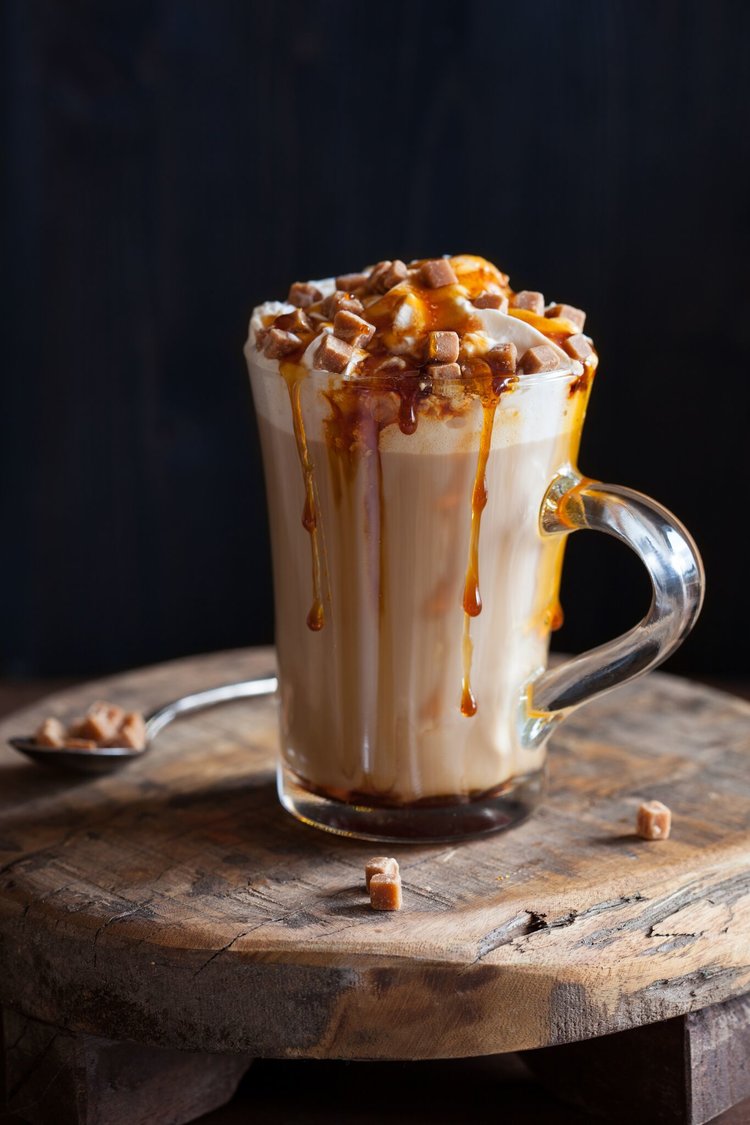
The language is alive, Americans like to drink large cups of coffee, like vanilla, like the surface thick sauce, created the caramel macchiato, borrowed the meaning of Italian, so named. According to Italian usage, caramel macchiato would be a glass of 60ml milk with some caramel in it (but the same thing, named after Italian logic, would be called "Vaniglia Caff è Latte con Caramello").
END
Important Notice :
前街咖啡 FrontStreet Coffee has moved to new addredd:
FrontStreet Coffee Address: 315,Donghua East Road,GuangZhou
Tel:020 38364473
- Prev
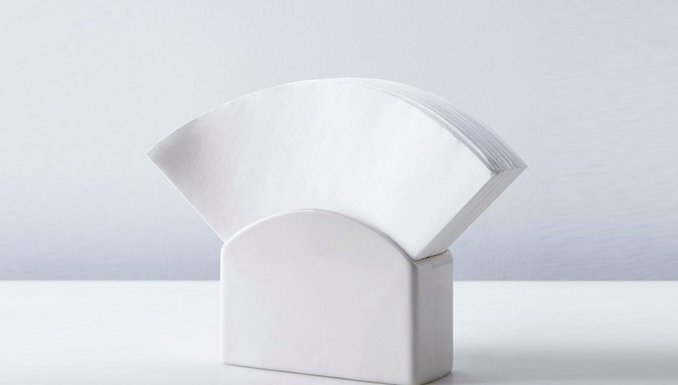
[suggestions for the use of filter paper] how to choose hand-held coffee filter paper? Is bleached filter paper poisonous?
Professional coffee knowledge exchange more coffee bean information please pay attention to the coffee workshop (Wechat official account cafe_style) hand coffee indispensable important supplies: filter paper, plays an important role in filtering and controlling the flow rate of coffee filter paper history coffee filter paper was invented in Germany at the beginning of the 20th century, a housewife in Melitta Bentz made it from blotting paper.
- Next
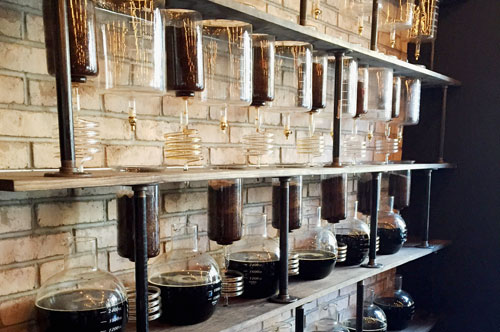
Inherit the experimental spirit of Dutch navigators! History of the invention of ice drop coffee _ how to get ice drop coffee
Professional coffee knowledge exchange more coffee bean information please follow the coffee workshop (Wechat official account cafe_style) hot summer? Try the coffee, new darling! Benefiting from the third wave of coffee (third wave of coffee), the whirlwind of ice drop coffee (cold drip coffee) has swept the global coffee industry. From London to Paris, from Tokyo to Amsterdam, from New York to Manha
Related
- Beginners will see the "Coffee pull flower" guide!
- What is the difference between ice blog purified milk and ordinary milk coffee?
- Why is the Philippines the largest producer of crops in Liberia?
- For coffee extraction, should the fine powder be retained?
- How does extracted espresso fill pressed powder? How much strength does it take to press the powder?
- How to make jasmine cold extract coffee? Is the jasmine + latte good?
- Will this little toy really make the coffee taste better? How does Lily Drip affect coffee extraction?
- Will the action of slapping the filter cup also affect coffee extraction?
- What's the difference between powder-to-water ratio and powder-to-liquid ratio?
- What is the Ethiopian local species? What does it have to do with Heirloom native species?

